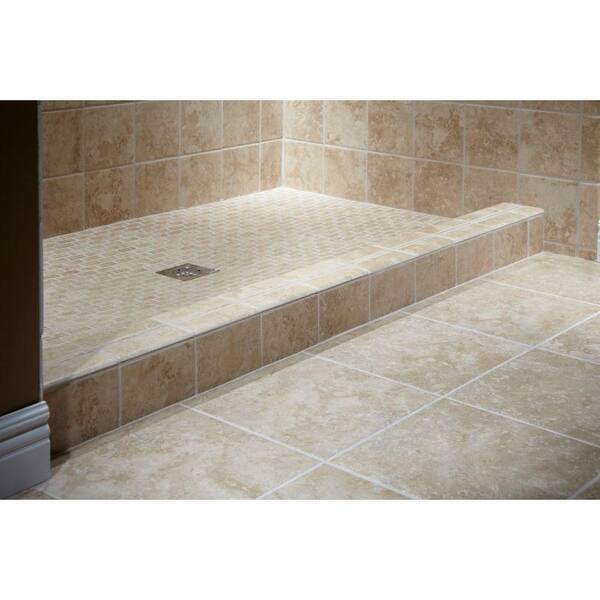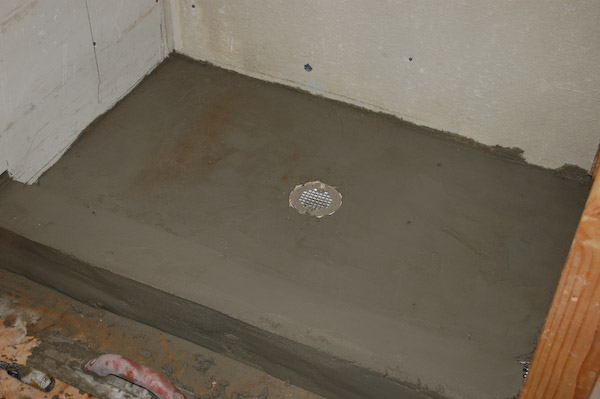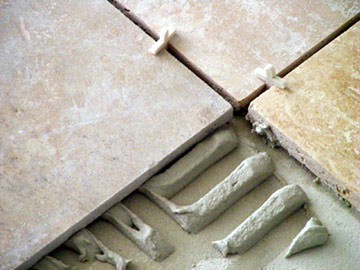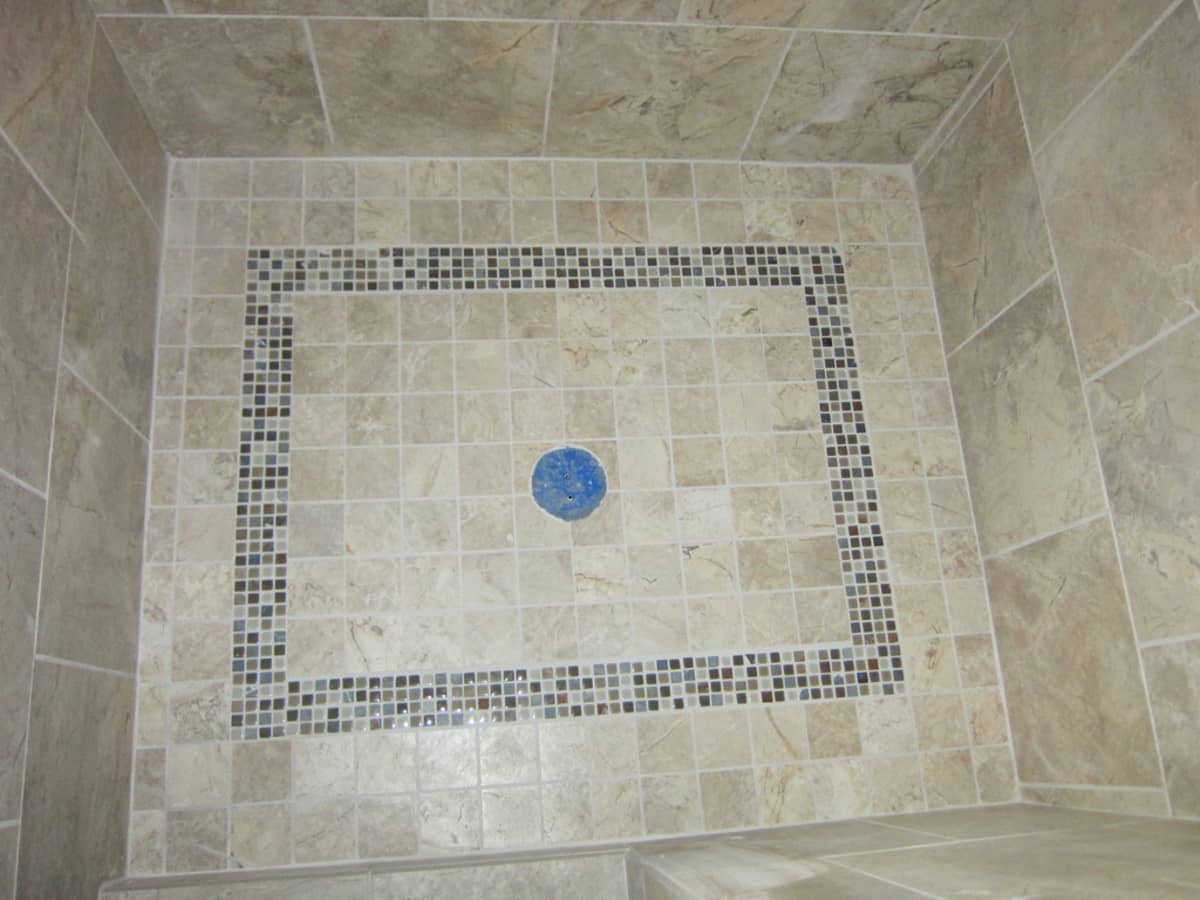This is because of the different types of bathroom tiles that’re in the market along with the many various designs and varieties. Not merely must they be attractive and reflective of the personality of yours, these tiles should also be very functional. If you have a small bathroom, you might use ceramic tiles that trimmed down to complement into bathroom.
Here are Images about Mortar For Bathroom Tile
Mortar For Bathroom Tile
/tile-mortar-guide-thinset-mastic-and-epoxy-1821651_hero-3a49ffa14b89485aab8627fd708663b7.jpg)
If you throw a house party, you cannot prevent your guests to go to the bathroom of yours. Then wash all areas of the spot thus the clutter is cleared off. Homeowners with modest bathrooms may wish to consider a great color tile or a subtle little pattern on large tiles. Forget about having a traditional and dull tile design in your bathroom.
How To Trowel Tiles With Thinset Mortar For Shower Walls

These tiles are typically available in bright hues and are glazed so the shades of theirs don’t very easily get washed off. You will find various elements which make your bathroom look attractive and tiles are at least one. In case you’re planning on changing the bathroom tiles of yours, a very good option is Porcelain tiles.
Images Related to Mortar For Bathroom Tile
MAPEI Porcelain 50-lb Gray Thinset Tile Mortar in the Mortar

Ceramic bathroom flooring tile is often used because of its durability, resistance to dampness, its safety to move on when wet and the ease of its of cleaning. Beige or white tiles develop the sensation of spaciousness. Mosaic tiles are quite widely used among men and women as decorative tiles. As you have laid down the tiles from step 2, start putting in some spacers.
Choosing Grout and Mortar Loweu0027s
Tile Mastic vs. Thinset Mortar: Buying Guide
Spreading Wet Mortar Before Applying Tiles On Bathroom Floor Stock
Pre-mixed Mastic vs. Powder Based Mortar – Builders Surplus
CustomFloat 50 lbs. Bedding Mortar
Best Thinset For Shower Walls : Top 6 Picks for 2022
How To Build A Tile Shower Pan icreatables.com
How to Apply Thinset Mortar for Tile – HomeTips
Custom Building Products ProLite White 30 lb. Rapid Setting Tile
Thinset for TileDOu0027s and DONu0027Ts (Quick Tips with Sal DiBlasi)
How to Slope a Shower Floor With Mortar – Dengarden
Related articles:
- Bathroom Tile Resurfacing Sydney
- Bathroom Tiles Small Bathrooms Ideas Photos
- Bathroom Tiles Hobart
- Ceramic Bathroom Tile Designs
- Bathroom Tiles Ceramic Or Porcelain
- Painting Porcelain Bathroom Tile
- Regrouting Bathroom Tile Floor
- Modern Bathroom Tile Pictures
- White And Black Bathroom Tile Ideas
- Bathroom Tile Ideas Cream
Mortar for Bathroom Tile: What You Need to Know
When it comes to tiling a bathroom, the right mortar is essential. The right mortar ensures your tiles are properly secured and will last for years to come. Knowing which type of mortar to use in your bathroom can be daunting, but with this guide you’ll have all the information you need.
What Is Mortar?
Mortar is a versatile material used in construction and renovation projects. It is made up of a cementitious binder and other ingredients, like sand and water. The purpose of mortar is to hold building materials together and add strength to structures. In the case of tiling a bathroom, mortar acts as an adhesive for the tiles, making them secure and waterproof.
Types of Mortar for Bathroom Tile
There are several types of mortar available for tiling a bathroom. Each type has its own advantages and disadvantages, so it’s important to choose the right type for your project.
Thin-Set Mortar
Thin-set mortar is one of the most popular types of mortar for bathroom tile. It is a cementitious material that is applied in a thin layer on top of the substrate before installing the tiles. Thin-set mortar can be used on both walls and floors, and it bonds well with ceramic, porcelain, stone, and glass tiles. It also provides a strong bond that resists water damage and cracking over time.
Mastic
Mastic is another type of mortar often used in bathrooms. It is a premixed adhesive that does not require mixing or curing like other types of mortars do. Mastic works well for walls because it can be applied directly on drywall without having to use backer boards or mesh tape first. It also bonds well with ceramic, porcelain, stone, glass, and metal tiles. However, mastic can be difficult to remove if repairs need to be made down the line.
Latex Additive Mortar
Latex additive mortar is a mix between thin-set mortar and mastic. It is more flexible than either of those two types of mortars, making it ideal for bathrooms with high levels of moisture or areas that may experience movement due to changing temperatures or ground shifting over time. Latex additive mortars bond well with ceramic tile but should not be used on heavier materials like natural stone or slate because they may not adhere correctly over time.
Frequently Asked Questions About Mortar for Bathroom Tile
Q: What Is the Best Mortar for Installing Bathroom Tile?
A: The best type of mortar for installing bathroom tile depends on several factors such as the location (walls or floors), substrate material (drywall or concrete), tile type (ceramic or stone), and desired flexibility (rigid or flexible). Generally speaking, thin-set mortars are best for walls while mastic works well on floors; however, latex additive mortars offer better flexibility if needed.
Q: How Long Does Mortar Take to Set Up?
A: Most mortars take 24 hours to fully set up; however, some latex additive mortars may take longer due to their higher moisture content. For best results, wait 48 hours before grouting your tile installation.
Q: How Do I Clean Up Mortar After Installing Tiles?
A: Cleaning up after installing tiles with mortar requires patience and care in order to avoid damaging your newly installed tiles. Start by using a wet sponge or cloth to wipe away any excess mortar that has dried on your tiles or surrounding walls/floors before scrubbing with an abrasive pad if necessary. Once all excess mortar has been removed, rinse everything off with clean water before allowing it to dry completely overnight before grouting your tile installation.
What type of mortar should I use for bathroom floor tile?
Mortar for bathroom floor tile should be a thin-set or medium-bed mortar designed specifically for ceramic tile. Thin-set mortar is a type of cementitious adhesive that sets quickly and bonds well to ceramic tiles, and it can be used on both walls and floors. Medium-bed mortars are a thicker version of thin-set mortars and are designed for larger format tiles and thicker tile installations. Both types of mortars provide a strong bond that is water-resistant and crack-proof, making them ideal for bathroom floor tile.
What type of grout should I use with bathroom floor tile?
The most commonly used grout for bathroom floor tile is a flexible, water-resistant, sanded grout. This type of grout is designed to resist water and mildew while being flexible enough to move with the tile as it adjusts to temperature and humidity changes. Non-sanded grout should not be used in bathrooms as it is too brittle and can crack over time.
What type of grout should I use with ceramic tiles?
For ceramic tiles, you should use a sanded grout with a minimum porosity rating of 0.5 or less. Unsanded grouts are also available, but they are not suitable for areas that receive a lot of foot traffic. For areas that do receive a lot of foot traffic, it may be necessary to use an epoxy grout, which is more durable and resistant to staining.

/tile_mastic_vs_thinset_mortar_1822590-d17ffe4bed664cd891ea74907ba94fab.jpg)







